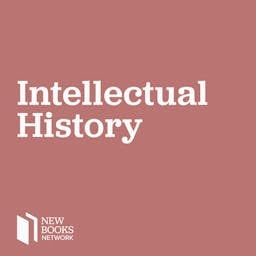Walter Benjamin was a German-Jewish intellectual and philosopher associated with the Frankfurt School, who tragically died at 48 years old in 1940 as he fled the advance of the Third Reich on the French-Spanish border. Most writers and critics see Benjamin’s work as fragmented, disjointed, esoteric and dispersed, with no clear narrative or cohesive philosophy. Duy Lap Nguyen, Associate Professor in World Cultures and Literatures at the University of Houston, paints a different picture of Benjamin’s work. In Nguyen’s revealing, latest book, Walter Benjmain and the Critique of Political Economy: A New Historical Materialism (Bloomsbury, 2024), he navigates through Benjamin’s complex organon and meticulously puts together these apparently disperse philosophical threads into a cohesive whole. Nguyen argues that Benjamin’s work demonstrated a holistic philosophical project, and he takes the reader through the latter’s early critical engagement with anarchist praxis and Kantian thought, through to Benjamin’s ‘Marxist’ turn that put him in conversation with the Frankfurt School. The historical materialism of Benjamin, Nguyen carefully demonstrates, was centred on his critique of the ahistorical conceptions of time and history that were the foundation for popular, contemporaneous notions of ‘progress’. Benjamin rallied against neo-Kantians and early twentieth century social democrats alike for their adherence to the ‘infinite struggle’, which posited the necessity for the continued, unachievable pursuit of the realisation of some ethical beyond, abstracted from historical conditions and forces of production, namely capitalism, that made their realisation impossible. Against these ahistorical conceptions, Benjamin’s historical materialism saw modernism as a historically specific form of society, and not the eternal, fate-bound destiny that humanity was entrapped into. Duy Lap Nguyen’s book offers a new insight into not only the crucial philosophy of Walter Benjamin, which demands resurrection in our historical juncture of overlapping crises and fascistic resurgence, but a richly detailed investigation into the ideas, people, and movements that surrounded Benjamin in his time. Nguyen’s book, then, provides a holistic account of Benjamin’s often forgotten philosophical contributions, how they were shaped, and what Benjamin can contribute to the critique of today’s political economy. Elliot Dolan-Evans is a sessional lecturer in law at Monash University and RMIT. His research investigates the political economy of global capitalism, forms of international governance, and questions of war and peace. His first book, Making War Safe for Capitalism: The World Bank, IMF and the Conflict in Ukraine, is now out with Bristol University Press. Learn more about your ad choices. Visit megaphone.fm/adchoices Support our show by becoming a premium member! https://newbooksnetwork.supportingcast.fm/intellectual-history
続きを読む
一部表示
 29 分
29 分 50 分
50 分 54 分
54 分 2026/01/2741 分
2026/01/2741 分 38 分
38 分 1 時間 27 分
1 時間 27 分 2026/01/2446 分
2026/01/2446 分 57 分
57 分
